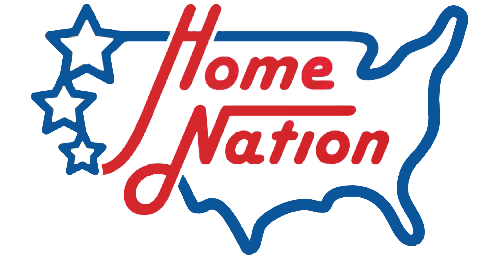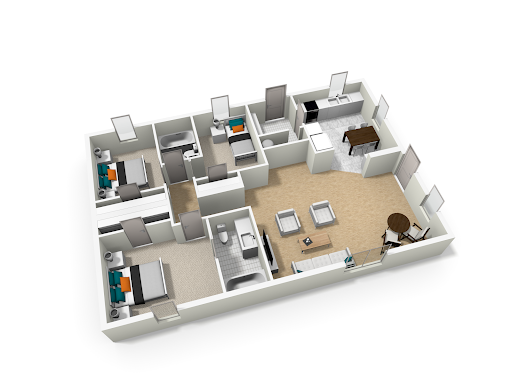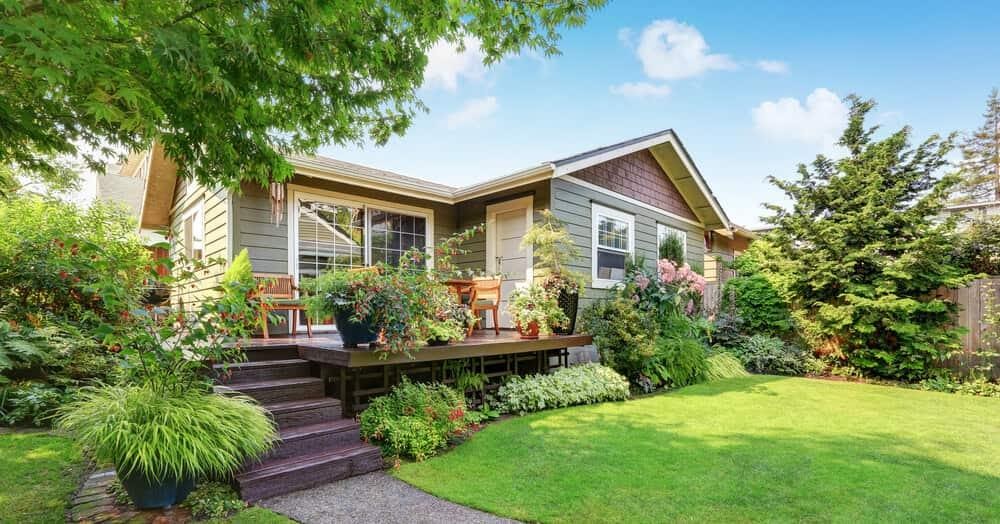
Choosing between owning a home and renting one is a big decision that affects your finances and lifestyle. Both options have advantages and disadvantages, and what works best for one person might not work best for another. This article will help you understand the key differences to make an informed choice.
Key Takeaways
-
Owning a home requires more upfront costs, such as down payments and closing fees, while renting usually requires a security deposit and the first month's rent.
-
Monthly expenses for homeowners can include mortgage payments, property taxes, and maintenance, whereas renters typically only pay rent and utilities.
-
Owning a home can build equity over time, offering long-term financial benefits, while renting offers more flexibility and fewer responsibilities.
-
Homeowners have more control over the customization and personalization of their living space, while renters may have to follow the landlord's rules.
-
Market conditions, such as interest rates and housing prices, can significantly impact the cost-effectiveness of buying versus renting.
Financial Implications of Owning vs Renting
Upfront Costs and Down Payments
The biggest hurdle when buying a home is often the down payment, which can be significant, usually around 20% of the home's price. Additionally, you need to cover closing costs ranging from 2% to 6% of the loan amount. On the other hand, renting typically requires a security deposit, often equivalent to one or two months' rent, making it less financially demanding.
Monthly Payments and Expenses
Making principal and interest-only mortgage payments each month is a requirement of homeownership. In addition, you will need to budget for homeowners insurance, property taxes, and, if your down payment is under 20 percent, private mortgage insurance (PMI). Tenants pay a set monthly rent that might or might not cover utilities. Renters may eventually see a rise in rent even though they are exempt from property taxes and insurance.
Long-term Financial Benefits and Risks
Owning a home can be a good investment. Over time, you build equity, the portion of the house you own outright. This can be a financial asset. However, home values can fluctuate, and there's a risk of losing money if property values decline. Renting offers more financial flexibility and less risk, but it doesn't build equity or provide the same potential for long-term economic gain.
Lifestyle Considerations
Flexibility and Mobility
When you rent, you have the freedom to move at the end of your lease. This is great if you like to travel or if your job requires you to relocate often. On the other hand, owning a home means you are more tied down. Selling a house takes time and money, so it's not as easy to just pick up and leave.
Stability and Community
Owning a home can give you a sense of stability. You can put down roots and become part of a community. This is especially important if you have kids and want them to grow up in a stable environment. Renting, however, might mean you move more often, making it harder to feel like part of a community.
Customization and Personalization
When you own a home, you can make it your own. You can paint the walls, remodel the kitchen, or add a room. Renting usually comes with restrictions. You might not be able to make any changes, or you might need to get permission from your landlord first. Ownership is the way to go if you want a home that reflects your style.
Related: Building A Mobile Home: The Construction Process
Responsibilities and Maintenance
Maintenance and Repairs
When you own a home, you are responsible for all maintenance and repairs. This can be costly and time-consuming. Homeowners often spend a significant amount on upkeep. For example, replacing a roof or fixing a broken water heater can be expensive. If you live in a community with a Homeowners Association (HOA), some of these tasks might be handled for you, but this usually comes with a monthly fee.
On the other hand, renters do not have to worry about these costs. The landlord is responsible for maintenance and repairs. However, the quality and speed of these repairs might only sometimes meet your expectations.
Property Management
Owning a home means you have to manage the property yourself. This includes everything from mowing the lawn to dealing with pest control. If you rent, the landlord or a property management company typically handles the property management. This can save you a lot of time and effort.
Time and Labor Commitment
Homeownership requires a significant time and labor commitment. You might spend your weekends doing yard work or fixing things around the house. If you have a busy schedule or travel frequently, this can be a major drawback. Renting offers more flexibility, as you do not have to worry about these tasks.
Homeownership involves many responsibilities that can take up your time and money. Renting can be a simpler option if you prefer to avoid these commitments.
Market Conditions and Timing
Current Real Estate Market Trends
Understanding the current real estate market trends is crucial when deciding whether to buy or rent. Market conditions can significantly impact home prices and rental rates. Home prices are high in a seller's market due to increased demand and limited supply. Conversely, in a buyer's market, more homes are available than buyers, often leading to lower prices.
Interest Rates and Mortgage Availability
Interest rates play a vital role in the decision to buy or rent. Lower interest rates make mortgages more affordable, encouraging homeownership. On the other hand, higher interest rates can increase monthly mortgage payments, making renting a more attractive option. It's essential to monitor interest rate trends and mortgage availability to make an informed decision.
Economic Factors and Housing Prices
Economic factors such as employment rates, inflation, and economic growth can influence housing prices. A strong economy typically increases home prices due to increased purchasing power. Conversely, home prices may drop during economic downturns, making it a good time to buy. Monitor economic indicators to gauge the best time for your housing decision.
Timing your decision to buy or rent based on market conditions can save you significant money in the long run.
Related: Buying a Mobile Home With No Money Down: Best Options
Building Equity vs Paying Rent

Understanding Equity
Equity is the accumulation of ownership in a home. The difference between the value of your house and the amount you still owe on your mortgage is called equity. Your equity builds when you reduce your mortgage and if the value of your house rises. When you sell your house, you can cash out or borrow against this potentially sizable financial asset.
Renting and Financial Flexibility
Renting offers more financial flexibility. You don't need a large down payment; your monthly costs are usually predictable. However, renting doesn't build equity. Your rent payments go to your landlord, and you don't gain any financial benefit from property value increases.
Investment Potential of Homeownership
Homeownership can be a good investment. Over time, as you build equity, you can sell your home for a profit. Additionally, owning a home can provide stability and a sense of community. However, it's important to remember that home values can also decrease, and there are costs associated with maintenance and repairs.
While renting provides flexibility and fewer responsibilities, owning a home can be a path to building wealth through equity.
Related: Guide To Mobile Home Sizes & Dimensions
Tax Benefits and Incentives

Homeownership Tax Deductions
A home's ownership might have several tax advantages. The mortgage interest deduction is among the most important. This lets you write off the interest you pay on your mortgage as a tax deduction, saving you a lot of money—especially if interest rates are higher at the beginning of your loan. You can also deduct the property taxes you paid for your house. The annual tax amount you pay may vary significantly due to these deductions. It's crucial to remember that these advantages are only accessible if you choose to itemize your deductions instead of claiming the standard deduction.
Renting and Tax Considerations
On the other hand, renters do not receive the same tax benefits as homeowners. While you can't deduct your rent payments, you can still take advantage of the standard deduction available to all taxpayers. This means that even without the specific deductions available to homeowners, you can still reduce your taxable income by the annual standard amount set by the IRS.
Government Programs and Assistance
There are various government programs designed to assist homeowners with their tax burdens. For example, the first $250,000 of profit from the sale of your home is excluded from taxation if you're single, and this amount increases to $500,000 if you're married and filing jointly. Additionally, some programs offer tax credits for energy-efficient home improvements. These incentives can offset some of the costs associated with homeownership and make it a more financially viable option for many people.
Understanding the tax benefits and incentives associated with homeownership can help you make a more informed decision about whether to buy or rent. While homeowners can access specific deductions and credits, renters can still benefit from the standard deduction. Consider your financial situation and long-term goals when weighing these options.
Discover the fantastic tax benefits and incentives available when you choose a new home from Home Nation. Our homes are affordable and have financial perks that can save you money in the long run. Don't miss out on these opportunities! Visit our website to learn more and start your journey to owning a new home today.
Conclusion
Deciding whether to rent or own a home is a significant choice that impacts your finances, lifestyle, and plans. Renting offers flexibility and fewer responsibilities, making it an attractive option for those who value mobility and lower upfront costs. On the other hand, owning a home provides stability, potential equity growth, and the freedom to personalize your living space. Each option has its pros and cons, and the best choice depends on your circumstances and long-term goals. By carefully weighing the benefits and drawbacks of renting and owning, you can make an informed decision that best suits your needs and aspirations.








